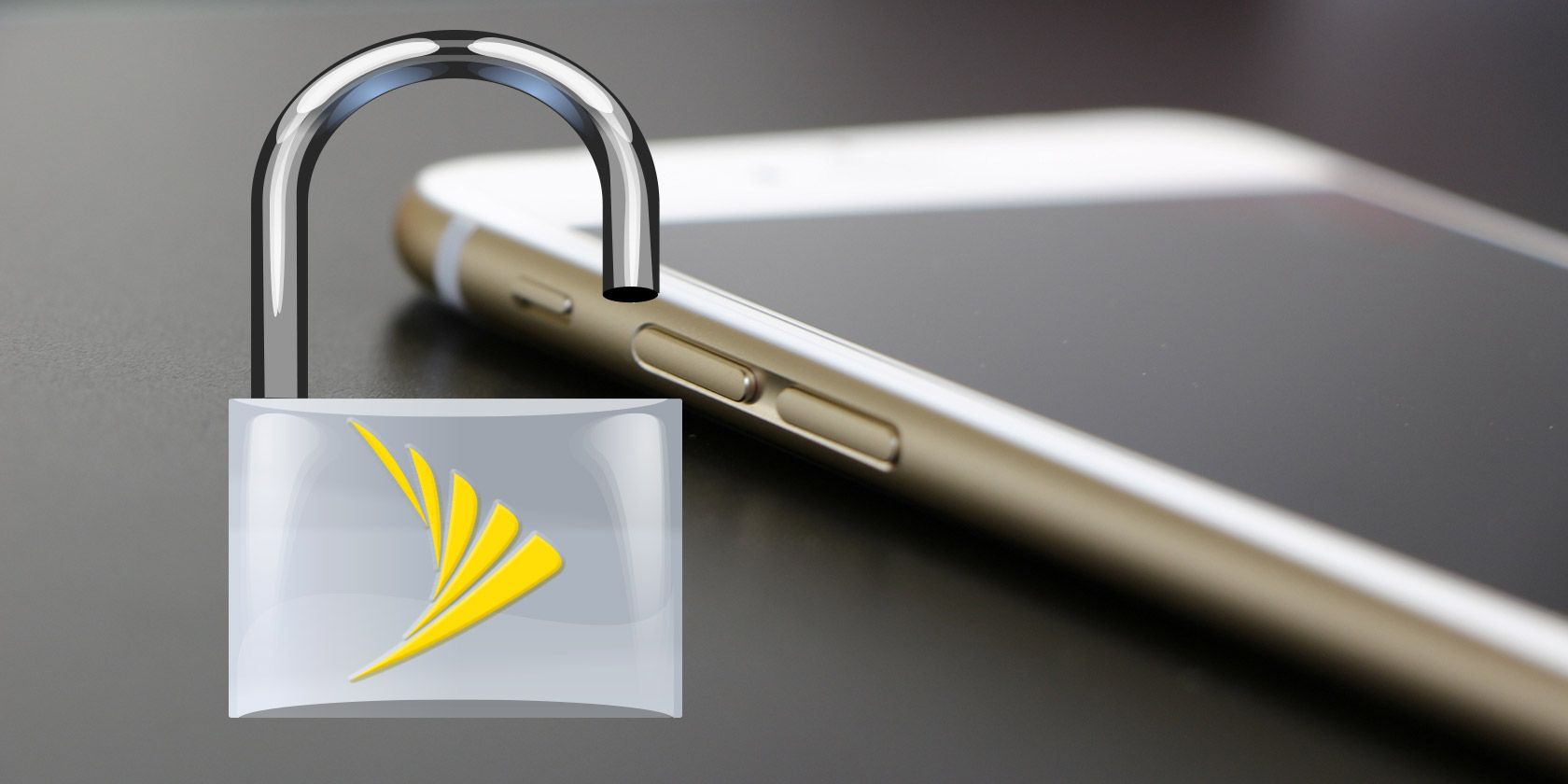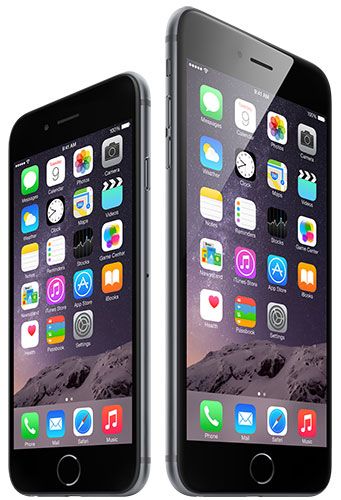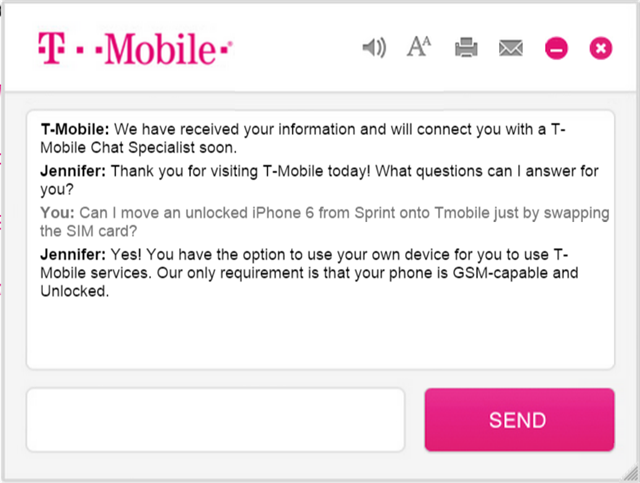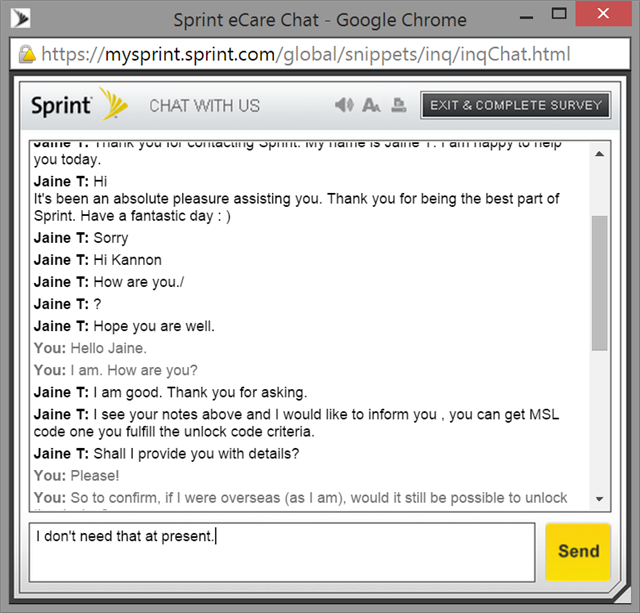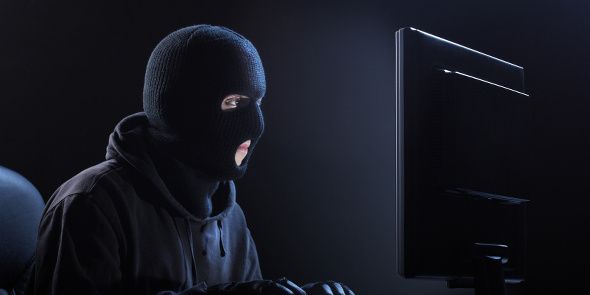A Reader Asks:
I have an iPhone 6 that's locked to Sprint which was purchased after February 11th 2015. Will it unlock automatically or is there something I need to do? I bought it from a person who used to live in the United States and I'm from the Philippines.
I've read that phones released after February 14, 2015 (Sprint) will be eligible for getting carrier (international) unlocked, but as I checked the status of the phone the phone was reported to be blacklisted, stolen or lost.
I've checked various online sites that can teach me how to unlock my iPhone but it's very expensive.
I tried using SIM cards from the Philippines but it wouldn't allow me to use the phone.
How can I unlock my iPhone?
Kannon's Reply:
Unlocking an iPhone from Sprint for use with another network is a big hassle. There's reasons for this. The iPhone remains the most coveted phone in the known universe. It's been cloned, picked (known as Apple-picking), and emulated. So why would any major corporation let you have it without trying to exploit the tech-lust central to Apple's profit making strategy? In short: There's no easy way to get an iPhone for cheap. You're going to need to pay, one way or another. Even the recent law requiring Sprint to unlock their phones (after contractual obligations have been met) hasn't made things much easier.
Contrary to rumor, Sprint does not automatically unlock the phone and -- in fact -- have additional roadblocks and barriers to getting your phone set up with another carrier. There are several possible cases which can affect your likelihood of successfully unlocking your phone. For brevity's sake, I'll include them here:
- You (or your friend) have completed the contract.
- You have not completed the full-year contract.
- The phone was stolen.
You Have Completed Sprint's Contract
If you have completed the standard twenty-ish month contract with Sprint (and it sounds as if your friend has not), then the phone can be unlocked simply by contacting Sprint's customer service and requesting that they unlock the phone. They will request the Master Subsidy Lock (MSL), the IMEI, and other information. If Sprint can verify that the contract associated with the phone has been completed, then they are legally obligated to unlock the phone for use with any carrier.
It's a little more complicated than that, though: Smartphones include different kinds of cellular bands, or broadcast frequencies, which it uses to connect and transfer data with cellular towers. These bands vary by country and by network technology (CDMA or GSM, loosely). Additionally, there's the LTE bands, which is a faster technology for data transfer. The iPhone 6 is reported [Broken URL Removed] to operate on the following bands:
- LTE: 1-5, 7, 8, 13, 17-20, 25, 26, 28, 29
- GSM/EDGE: 850, 800, 1800, 1900 MHz
- CDMA: 800, 1700/2100, 1900, 2100 MHz
You would need to check with your carrier in the Philippines for the LTE bands (this is the issue with almost all American phones used in other regions), but the chances are if you have LTE in your region, then the iPhone 6 will work. If your phone does not fully support the bands in your region, then the phone may not work. Or, it might transfer data at reduced speeds. Or it may receive incomplete network coverage.
While the iPhone 6 physically supports most cellular bands used internationally (similar to the Motorola Nexus 6), that doesn't immediately mean it can work on any network just by swapping the SIM card out (what's a SIM card?) as there are other complicating factors.
Read on for additional problems.
You Have Not Completed Sprint's Contract
If you have not completed Sprint's contract, they will hit you with a Early Termination Fee (ETF). If you pay the ETF, then they are legally obligated to unlock your phone. If you do not pay, Sprint will blacklist your phone (see the section below regarding stolen iPhones). Because Sprint uses a Master Subsidy Lock (MSL), it can control whether or not an individual phone can become unlocked for use overseas (or on any network). To my knowledge, there's no method to crack this code (and those who claim they can are scam artists).
On top of that, Sprint requires users to fulfill at least three months of their contract before they're willing to give you an MSL code (which unlocks the device). The main reason for this seemingly bad behavior: Sprint sells the phone at a substantially discounted price of $200. The unlocked cost for a Sprint iPhone 6 hovers around $600-650 for the cheapest variant.
This price asymmetry between the locked (also called subsidized) and unlocked phones translates into higher prices, even though buyers technically save $400 at face value. Think about it: With a Ting (what's an MVNO?) account, you pay around $21 per month for service, on average, which translates into a total cost of $1,154 (including tax) over a two-year period. If you pay the Sprint average for a subsidized phone, the total costs fall somewhere around $2,120 (without tax). That's over $1,000 dollars difference.
In short, never buy a subsidized phone.
The Phone Was Stolen
Shame on the wretched Apple-picker. In this case, the phone's IMEI (a unique, identifying number) has likely been reported as stolen and it cannot be added to networks in many developed economies. You can check the blacklist here [Broken URL Removed]. To the extent of my knowledge on this subject, there shouldn't exist any means of unlocking the phone, unless you're capable of unlocking the device at the hardware level.
If the phone has been blacklisted because of a failure to pay the ETF, then you must contact Sprint and offer to pay the ETF. In this case you will probably be denied, but there's a slim chance they might unlock the device.
You've Got to Pay Lots of Money
We've hashed and rehashed the various schemes out there for getting cheap iPhones. Most of these (if not all) are scams. I haven't heard of a single, credible source that can unlock a Sprint-locked phone. If one exists, it violates the law in the United States.

